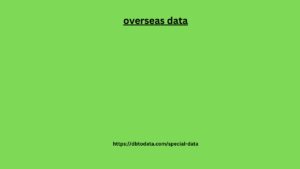For Björn Brembs and Luke Drury, the recent announcement by the Bill & Melinda Gates Foundation of their new Open Access .Policy signals a growing consensus regarding the imperative to transform the scholarly publishing landscape.
The Bill & Melinda Gates
Foundation has recently announced their new Open Access Policy. Three key points stand out:Discontinuation of Article Processing Charges (APCs);
Mandatory posting of grantees’ work as preprints;
Commitment to providing assistance for open science infrastructure.
These policy changes are warmly welcomed and reflect a growing consensus in academia.
The scholarly
Community has long recognized that a stratified journal landscape based on publishing fees. (Article Processing Charges, APCs), which privileges only the wealthiest institutions or scholars with access to high-ranking journals. Would exacerbate the inequalities and issues stemming from the commercialization of academic publishing. This model also perpetuates an antiquated mode of scholarly. Communication that fails to fully embrace the reality and potential of our digital world.
One promising
Approach to address these challenges is post-publication peer review of preprints. Preprint servers are increasingly becoming normalized as primary publication venues. Reflecting the expectations of open science values such overseas data as concurrent . Data sharing and highlighting the necessity to rethink the peer review process.
The Howard Hughes
Medical Institute (HHMI) in the US was among how to communicate with customers on telegram the first to call for a shift away from traditional journals towards preprint-based publishing platforms. Advocating for a peer-review process that is “transparent, journal-agnostic and consultative.” Similarly, a group of scholarly experts bulk data suggested to “replace academic journals” with modern digital infrastructures.
A significant milestone occurred when the Council of EU science ministers also concluded that. To tackle the vendor lock-in preventing equitable scholarly publishing, they would “encourage Member States and the EU Commission. To invest in and foster interoperable, not-for-profit infrastructures for publishing. Based on open-source software and open standards.”
On the same day,
ten major scholarly organizations issued a common press release in support of the science ministers’ conclusions. The International Science Council reached similar conclusions when advocating for the reform of scientific publishing. Around the same time. A coalition of funding agencies, including the Gates Foundation, known as cOAlition S, launched their own initiative. “towards responsible publishing.”
Climate change directly impacts the composition, structure and productivity of forests. Anticipated temperature increases and shifting precipitation patterns are a challenge to tree survival, Health, and growth.
The lack of policy
Coherence and conflicting priorities, from biodiversity conservation to wood production, shape a policy landscape littered with hurdles.
Socioeconomic factors ranging from forest ownership structures to demographic. Shifts and geopolitical developments all contribute to the overall complexity of the topic.
At the same time, global markets signal a growing demand for wood-based products. Mainly due to more rapid growth in developing and transitioning economies including Brazil, China and .
The role of innovation
The report underscores the urgency and complexity of addressing the impacts of pressing challenges. Like climate, and emphasizes the need for adaptation and innovation.

